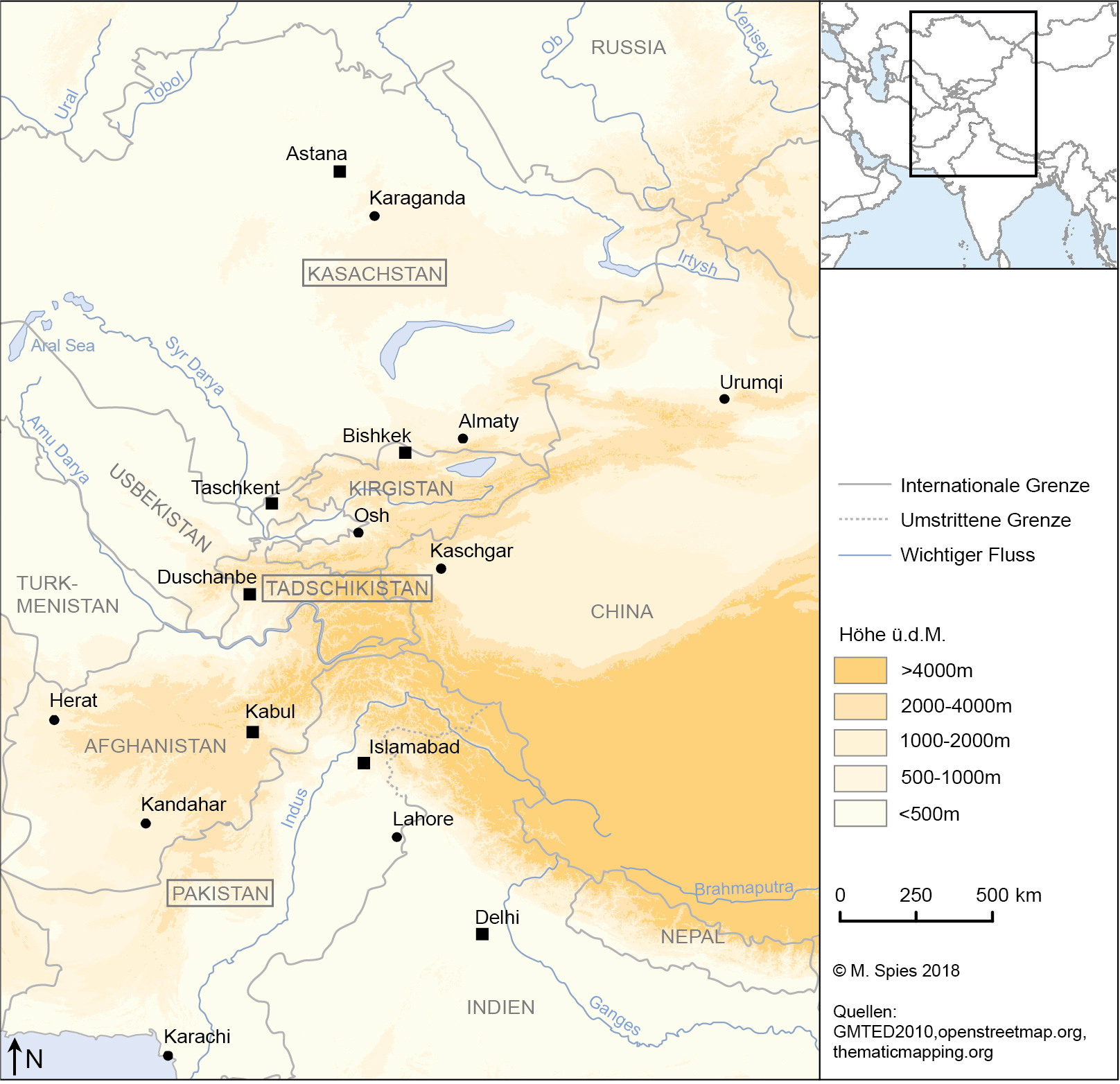TRANSECT ŌĆō Agrarian Transformations and Social-Ecological Complexities
Local Bioeconomy Scenarios in Central and South Asia

┬® HNEE / Michael Spies
The Junior Research Group TRANSECT investigates social-ecological effects and interdependencies of agrarian transformations in Central and South Asia. We will investigate how pathways towards a bioeconomy can be shaped in a more socially just and ecologically sustainable manner. With case studies in Pakistan, Tajikistan, and Kazakhstan, our research focuses on a region that has been subjected to vast agricultural interventions. Moreover, the growth of ChinaŌĆÖs bioeconomy sector and the progress of the ŌĆśBelt and Road InitiativeŌĆÖ are expected to shape future agricultural developments in the region. The Research Group provides in-depth analyses of local effects, opportunities, and risks of agricultural intensification and other transformation pathways. Furthermore, we aim to generate a practice-oriented and integrative methodology of analysis, scenario development and management of bioeconomic transformation processes. The analysis and management of such processes must take their complex and nonlinear character into account.
Sponsored by the Federal Ministry of Education and Research (BMBF) within the research program "Bioeconomy as Societal Change."
Project period: from May 2019 ŌĆō April 2024
Grant: 2.61 Million Euros

Central to the project will be the collection of empirical data from three case studies in the region aiming to investigate local manifestations of agricultural change. Inspired by assemblage and complexity theories, agricultural systems are conceptualized as dynamic social and ecological systems alike. System changes are always co-produced by a variety of social, natural, technical, and political constituents. Accordingly, the research will strongly draw on integrative methods.
Three local case studies will be conducted in the Punjab (Pakistan), Khatlon (Tajikistan), and Almaty (Kazakhstan) regions. The study will be complemented by two cross-cutting research modules, one investigating the ecological dimension of agricultural transformations in more detail, and the other focusing on ChinaŌĆÖs role as emerging stakeholder in the region, particularly in the realm of its growing bioeconomy sector. Departing from empirical analyses of past and current trends, we want to explore potential future pathways. Through a series of participatory workshops in the three study regions, the research group will develop local bioeconomy scenarios that will reveal possible social-ecological risks and will identify potential leverage points for proactive management strategies.





Postal Address:
Eberswalde University for Sustainable Development
Centre for Econics and Ecosystem Management
TRANSECT Junior Research Group
Schicklerstr. 5 (intern Haus 22.1)
16225 Eberswalde, Germany














